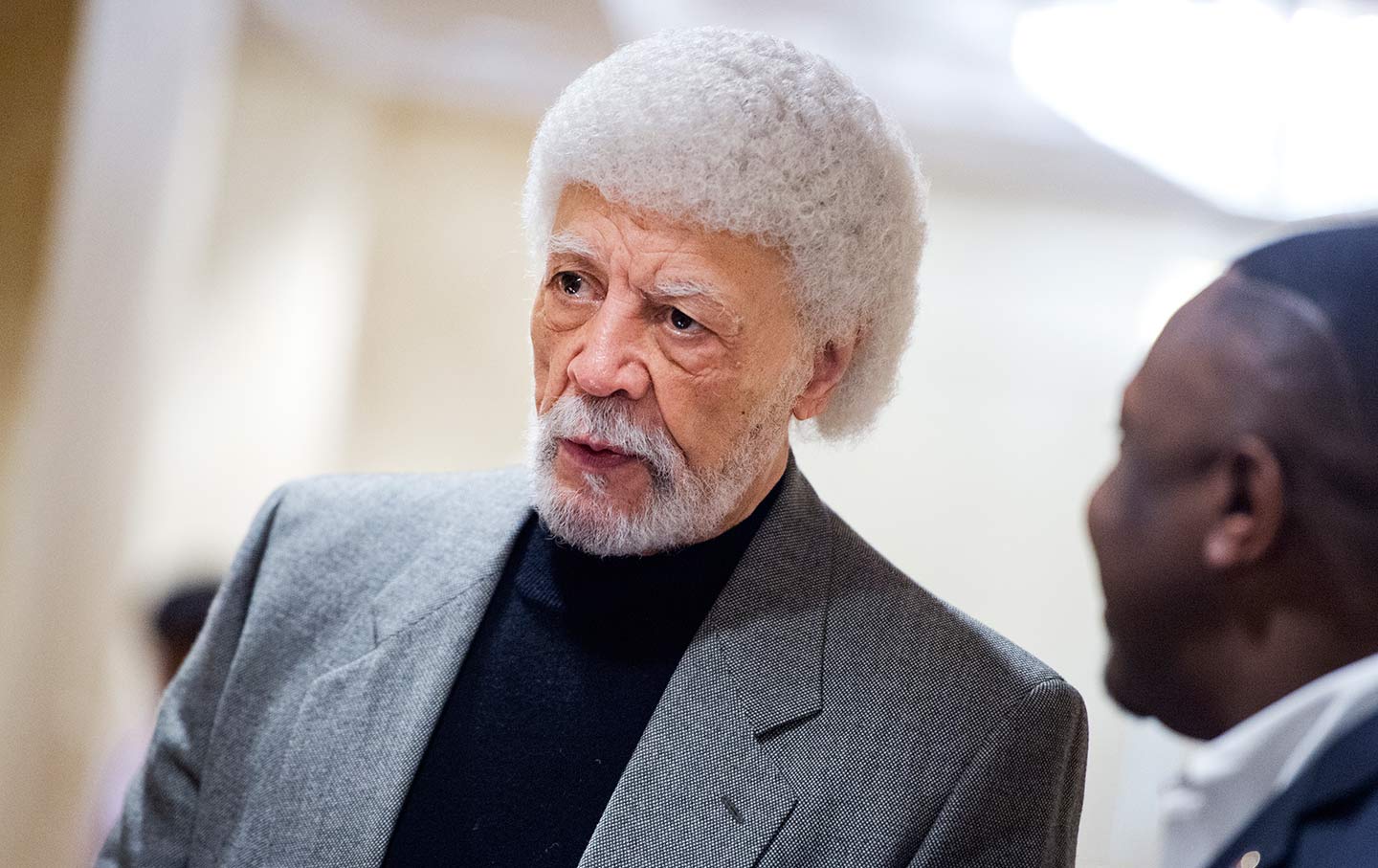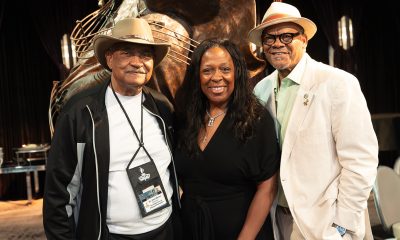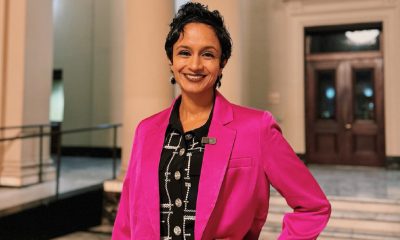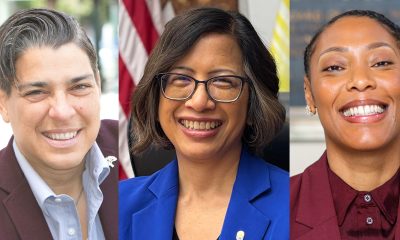Community
Revelations on How Police Salaries, Overtime Pay Tax Oakland’s Budget
At a time when Oakland is potentially facing a significant budget shortfall because of the pandemic and community demands to ‘defund’ the police, the cost of just two of the city’s 792 sworn officers raises questions about how city officials allocates the taxpayers’ money.

Oakland police officer Malcolm Miller’s total pay and benefits was $640,736 last year, including $257,326 in overtime; another policeman, Timothy Dolan, earned $601,135, including $322,071 in overtime.
At a time when Oakland is potentially facing a significant budget shortfall because of the pandemic and community demands to ‘defund’ the police, the cost of just two of the city’s 792 sworn officers raises questions about how city officials allocates the taxpayers’ money.
But they are not alone. Salary information taken from the website “Transparent California,” a nonprofit agency that obtains employee salary data through the California Public Records Act (CPRA), reveals even more.
Of the nearly 5,933 employees who worked for the City of Oakland in 2019-2020, a total of 356 earned total salary benefits, plus overtime, in excess of $300,000. A total of 356 city employees earned salaries and benefits in excess of $300,000 – including 187 police officers and 137 Fire Department staff.
According to the CPRA, “the Legislature, mindful of the right of individuals to privacy, finds and declares that access to information concerning the conduct of the people’s business is a fundamental and necessary right of every person in this state.”
Upholding these provisions, a court ruled in a case in 2007 “that the names and salaries of public employees, including peace officers, are not exempt from public disclosure under the California Public Records Act.”
The administration over the years has taken the position that nothing much can be done to reduce police overtime or to hold overtime expenditures within budgeted spending levels.
But one recent mayor, the late Ron Dellums, was unafraid to go head-to-head with the Oakland Police Officers Association (OPOA) and in 2010 reduced overtime expenditures, keeping them within the budget.
When Dellums came into office, police management did not have the power to schedule officers without negotiating with OPOA. In practice, this meant that officers were scheduled Monday through Friday during the day. If they were needed to work on Friday and Saturday nights, and other times when there were greater public safety needs, they had to be paid overtime.
Earning the displeasure of the officers’ organization, Dellums and his police chief, Wayne Tucker, took the OPOA to arbitration and won changes in the way officers were scheduled for duty.
“They stood up to the OPOA,” said Kitty Kelly Epstein, a former staffer for Dellums. “Dellums and Tucker were determined to make a difference, and they did. This shows that a mayor and administration with backbone and commitment to the public can make a difference.”
At the same time that overtime went down, homicides fell by 40% under Dellums, indicating that costs can be reduced without sacrificing public safety.
A report from the City Auditor in 2019 found that the police department is unrealistic in the way it budgets for police overtime, that city policies are not being followed, and the “entire process is being poorly managed” according to a Channel 4News report on June 20, 2019.
“One of the things that stands out is how the overtime is clustered and that the auditor pointed out how there may be inappropriate self-dealing going on in terms of senior police officials who are in charge of designating overtime,” said Councilmember Rebecca Kaplan in the news report.
The city audit says one officer responsible for a lot of decision-making (was) the second highest overtime earner for …five fiscal years, and he consistently assigned himself to work many of the special events.
The audit also found that three sworn staff worked more than 70 days without a day off in violation of the department’s policies.
“We also identified instances in which OPD staff worked overtime when they were on paid leave such as sick, holiday, bereavement, military and family medical leave, in violation of the department’s policy,” the audit said.
Despite years of discussion about runaway overtime, controls are still lacking. “The department should review all situations when staff are working overtime, provide written authorization for exceptions, and implement appropriate management control to monitor when staff may work voluntary overtime and when staff may not work voluntary overtime,” the audit said.
Activism
Oakland Post: Week of December 24 – 30, 2025
The printed Weekly Edition of the Oakland Post: Week of – December 24 – 30, 2025

To enlarge your view of this issue, use the slider, magnifying glass icon or full page icon in the lower right corner of the browser window.
Alameda County
Bling It On: Holiday Lights Brighten Dark Nights All Around the Bay
On the block where I grew up in the 1960s, it was an unwritten agreement among the owners of those row homes to put up holiday lights: around the front window and door, along the porch banister, etc. Some put the Christmas tree in the window, and you could see it through the open slats of the blinds.

By Wanda Ravernell
I have always liked Christmas lights.
From my desk at my front window, I feel a quiet joy when the lights on the house across the street come on just as night falls.
On the block where I grew up in the 1960s, it was an unwritten agreement among the owners of those row homes to put up holiday lights: around the front window and door, along the porch banister, etc. Some put the Christmas tree in the window, and you could see it through the open slats of the blinds.
My father, the renegade of the block, made no effort with lights, so my mother hung a wreath with two bells in the window. Just enough to let you know someone was at home.
Two doors down was a different story. Mr. King, the overachiever of the block, went all out for Christmas: The tree in the window, the lights along the roof and a Santa on his sleigh on the porch roof.
There are a few ‘Mr. Kings’ in my neighborhood.
In particular is the gentleman down the street. For Halloween, they erected a 10-foot skeleton in the yard, placed ‘shrunken heads’ on fence poles, pumpkins on steps and swooping bat wings from the porch roof. They have not held back for Christmas.
The skeleton stayed up this year, this time swathed in lights, as is every other inch of the house front. It is a light show that rivals the one in the old Wanamaker’s department store in Philadelphia.
I would hate to see their light bill…
As the shortest day of the year approaches, make Mr. King’s spirit happy and get out and see the lights in your own neighborhood, shopping plazas and merchant areas.
Here are some places recommended by 510 Families and Johnny FunCheap.
Oakland
Oakland’s Temple Hill Holiday Lights and Gardens is the place to go for a drive-by or a leisurely stroll for a religious holiday experience. Wear a jacket, because it’s chilly outside the Church of Jesus Christ of Latter-day Saints, at 4220 Lincoln Ave., particularly after dark. The gardens are open all day from 9 a.m. to 9 p.m. with the lights on from dusk until closing.
Alameda
Just across the High Street Bridge from Oakland, you’ll find Christmas Tree Lane in Alameda.
On Thompson Avenue between High Street and Fernside drive, displays range from classic trees and blow-ups to a comedic response to the film “The Nightmare Before Christmas.” Lights turn on at dusk and can be seen through the first week in January.
Berkeley
The Fourth Street business district from University Avenue to Virginia Street in Berkeley comes alive with lights beginning at 5 p.m. through Jan. 1, 2026.
There’s also a display at one house at 928 Arlington St., and, for children, the Tilden Park Carousel Winter Wonderland runs through Jan. 4, 2026. Closed Christmas Day. For more information and tickets, call (510) 559-1004.
Richmond
The Sundar Shadi Holiday Display, featuring a recreation of the town of Bethlehem with life-size figures, is open through Dec. 26 at 7501 Moeser Lane in El Cerrito.
Marin County
In Marin, the go-to spot for ‘oohs and ahhs’ is the Holiday Light Spectacular from 4-9 p.m. through Jan. 4, 2026, at Marin Center Fairgrounds at 10 Ave of the Flags in San Rafael through Jan. 4. Displays dazzle, with lighted walkways and activities almost daily. For more info, go to: www.marincounty.gov/departments/cultural-services/department-sponsored-events/holiday-light-spectacular
The arches at Marin County Civic Center at 3501 Civic Center Dr. will also be illuminated nightly.
San Francisco
Look for light installations in Golden Gate Park, chocolate and cheer at Ghirardelli Square, and downtown, the ice rink in Union Square and the holiday tree in Civic Center Plaza are enchanting spots day and night. For neighborhoods, you can’t beat the streets in Noe Valley, Pacific Heights, and Bernal Heights. For glee and over-the-top glitz there’s the Castro, particularly at 68 Castro Street.
Livermore
The winner of the 2024 Great Light Flight award, Deacon Dave has set up his display with a group of creative volunteers at 352 Hillcrest Avenue since 1982. See it through Jan. 1, 2026. For more info, go to https://www.casadelpomba.com
Fremont
Crippsmas Place is a community of over 90 decorated homes with candy canes passed out nightly through Dec. 31. A tradition since 1967, the event features visits by Mr. and Mrs. Claus on Dec. 18 and Dec. 23 and entertainment by the Tri-M Honor Society at 6 p.m. on Dec. 22. Chrippsmas Place is located on: Cripps Place, Asquith Place, Nicolet Court, Wellington Place, Perkins Street, and the stretch of Nicolet Avenue between Gibraltar Drive and Perkins Street.
Activism
Lu Lu’s House is Not Just Toying Around with the Community
Wilson and Lambert will be partnering with Mayor Barbara Lee on a toy giveaway on Dec. 20. Young people, like Dremont Wilkes, age 15, will help give away toys and encourage young people to stay in school and out of trouble. Wilkes wants to go to college and become a specialist in financial aid. Sports agent Aaron Goodwin has committed to giving all eight young people from Lu Lu’s House a fully paid free ride to college, provided they keep a 3.0 grade point average and continue the program. Lu Lu’s House is not toying around.

Special to the Post
Lu Lu’s House is a 501c3 organization based in Oakland, founded by Mr. Zirl Wilson and Mr. Tracy Lambert, both previously incarcerated. After their release from jail, they wanted to change things for the better in the community — and wow, have they done that!
The duo developed housing for previously incarcerated people, calling it “Lu Lu’s House,” after Wilson’s wonderful wife. At a time when many young people were robbing, looting, and involved in shootings, Wilson and Lambert took it upon themselves to risk their lives to engage young gang members and teach them about nonviolence, safety, cleanliness, business, education, and the importance of health and longevity.
Lambert sold hats and T-shirts at the Eastmont Mall and was visited by his friend Wilson. At the mall, they witnessed gangs of young people running into the stores, stealing whatever they could get their hands on and then rushing out. Wilson tried to stop them after numerous robberies and finally called the police, who Wilson said, “did not respond.” Having been incarcerated previously, they realized that if the young people were allowed to continue to rob the stores, they could receive multiple criminal counts, which would take their case from misdemeanors to felonies, resulting in incarceration.

Lu Lu’s House traveled to Los Angeles and obtained more than 500 toys
for a Dec. 20 giveaway in partnership with Oakland Mayor Barbara
Lee. Courtesy Oakland Private Industry,
Wilson took it upon himself to follow the young people home and when he arrived at their subsidized homes, he realized the importance of trying to save the young people from violence, drug addiction, lack of self-worth, and incarceration — as well as their families from losing subsidized housing. Lambert and Wilson explained to the young men and women, ages 13-17, that there were positive options which might allow them to make money legally and stay out of jail. Wilson and Lambert decided to teach them how to wash cars and they opened a car wash in East Oakland. Oakland’s Initiative, “Keep the town clean,” involved the young people from Lu Lu’s House participating in more than eight cleanup sessions throughout Oakland. To assist with their infrastructure, Lu Lu’s House has partnered with Oakland’s Private Industry Council.
For the Christmas season, Lu Lu’s House and reformed young people (who were previously robbed) will continue to give back.
Lu Lu’s House traveled to Los Angeles and obtained more than 500 toys.
Wilson and Lambert will be partnering with Mayor Barbara Lee on a toy giveaway on Dec. 20. Young people, like Dremont Wilkes, age 15, will help give away toys and encourage young people to stay in school and out of trouble. Wilkes wants to go to college and become a specialist in financial aid. Sports agent Aaron Goodwin has committed to giving all eight young people from Lu Lu’s House a fully paid free ride to college, provided they keep a 3.0 grade point average and continue the program. Lu Lu’s House is not toying around.
-

 #NNPA BlackPress4 weeks ago
#NNPA BlackPress4 weeks agoLIHEAP Funds Released After Weeks of Delay as States and the District Rush to Protect Households from the Cold
-

 Activism4 weeks ago
Activism4 weeks agoOakland Post: Week of November 26 – December 2, 2025
-

 Alameda County3 weeks ago
Alameda County3 weeks agoSeth Curry Makes Impressive Debut with the Golden State Warriors
-

 #NNPA BlackPress4 weeks ago
#NNPA BlackPress4 weeks agoSeven Steps to Help Your Child Build Meaningful Connections
-

 #NNPA BlackPress4 weeks ago
#NNPA BlackPress4 weeks agoSeven Steps to Help Your Child Build Meaningful Connections
-

 #NNPA BlackPress4 weeks ago
#NNPA BlackPress4 weeks agoTrinidad and Tobago – Prime Minister Confirms U.S. Marines Working on Tobago Radar System
-

 #NNPA BlackPress4 weeks ago
#NNPA BlackPress4 weeks agoThanksgiving Celebrated Across the Tri-State
-

 #NNPA BlackPress4 weeks ago
#NNPA BlackPress4 weeks agoTeens Reject Today’s News as Trump Intensifies His Assault on the Press





















































